Table Of Contents
- Introduction
- Why is Indoor Air Quality Important?
- The Importance of Effective Air Filtration
- Choosing the Right Air Filter
- Benefits of Effective Air Filtration
- Maintaining Your Air Filters
- Other Strategies for Improving Indoor Air Quality
- Maintain a Healthy and Safe Environment with Effective Air Filtration
Table Of Contents
- Introduction
- Why is Indoor Air Quality Important?
- The Importance of Effective Air Filtration
- Choosing the Right Air Filter
- Benefits of Effective Air Filtration
- Maintaining Your Air Filters
- Other Strategies for Improving Indoor Air Quality
- Maintain a Healthy and Safe Environment with Effective Air Filtration
Introduction
As we move into seasons riddled with pollen, sneezing, and antihistamines, the quality of our indoor spaces becomes more important. According to The USA National Phenology Network (USNPN), Spring 2023 has begun early across the country. So, how do we manage the inevitable?

Source: USNPN, 2023, Spring First Leaf Index Anomaly, https://www.usanpn.org/news/spring
Indoor air quality is one of the most important factors in maintaining a healthy and safe environment in any building. The quality of the air we breathe can have a significant impact on our health, productivity, and overall well-being. This is especially true for buildings with mechanical ventilation systems, where air is treated before entering each space. In this blog, we will discuss the importance of indoor air quality and effective air filtration for mechanical systems in more detail.
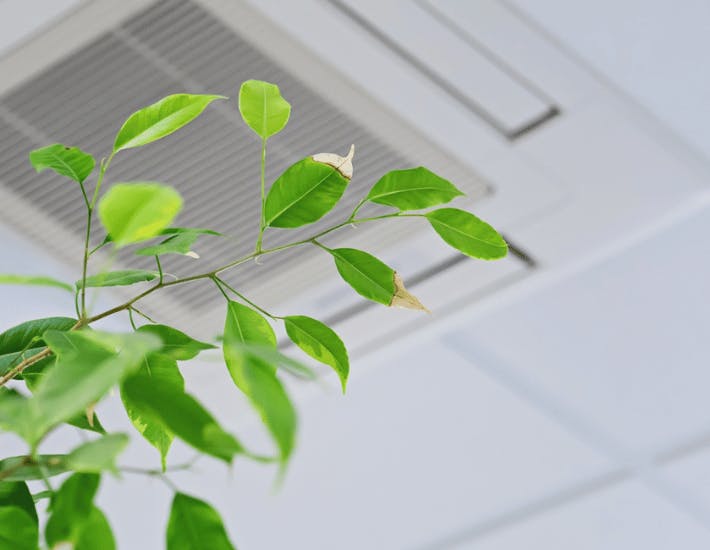
Why is Indoor Air Quality Important?
Indoor air quality refers to the quality of the air inside a building, including its temperature, humidity, and the concentration of pollutants. According to the Environmental Protection Agency (EPA), indoor air quality can be two to five times more polluted than outdoor air, which can lead to a variety of health problems such as allergies, respiratory issues, and even cancer. Additionally, poor air quality can cause fatigue, headaches, and irritability, which can impact our productivity and overall well-being.
HVAC systems play a crucial role in maintaining indoor air quality. These systems help regulate the temperature, humidity, and ventilation of indoor spaces, which directly controls the quality of the air we breathe.
The American Society of Heating, Refrigerating and Air-Conditioning Engineers (ASHRAE) sets standards for ventilation in buildings to ensure acceptable indoor air quality. ASHRAE Standard 62.1 provides guidance on ventilation rates and other measures to ensure adequate indoor air quality. Since its release in 1981, ASHRAE Standard 62.1 has been updated to reflect years of research, new statistical evidence, and improved building systems and technologies.
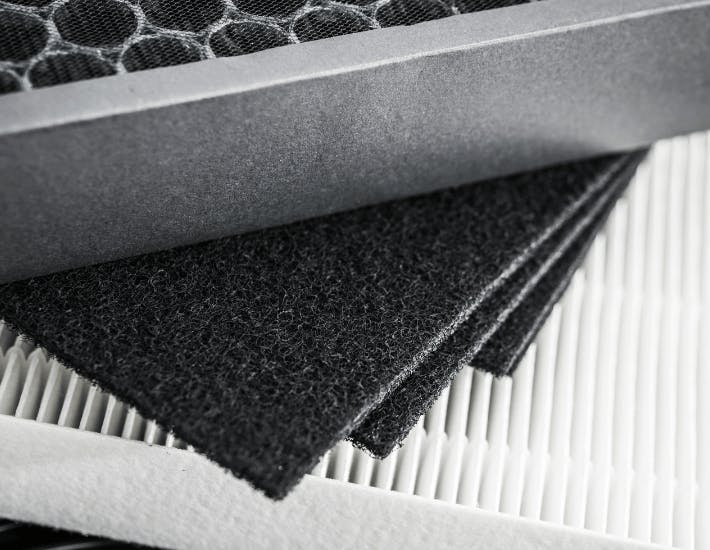
The Importance of Effective Air Filtration
One of the most important components of mechanical engineering systems is air filtration. Air filters help remove harmful particles and pollutants from the air, such as dust, mold, pollen, and bacteria. Effective air filtration can significantly improve indoor air quality and reduce the risk of health problems caused by pollutants.
There are several types of air filters available, including:
Fiberglass filters - These are the most common type of air filters and are made from layered fiberglass fibers. They are designed to trap large particles such as dust and debris.
Pleated filters - These filters are made from polyester or cotton and are designed to trap smaller particles such as pollen and pet dander.
HEPA filters - HEPA stands for High-Efficiency Particulate Air. These filters are made from a dense layer of pleated material and are designed to trap even smaller particles, such as mold spores and bacteria.
Choosing the Right Air Filter
Choosing the right air filter for your HVAC system is crucial to maintaining good indoor air quality. The type of filter you choose will depend on several factors, such as the size of your building, the type of pollutants present, and your budget.
When choosing an air filter, it's essential to consider the MERV rating (Minimum Efficiency Reporting Value). The MERV rating indicates how effective the filter is at trapping particles. The higher the MERV rating, the more effective the filter is at removing pollutants from the air. However, higher-rated filters can also be more expensive and may put more strain on your mechanical engineering system.
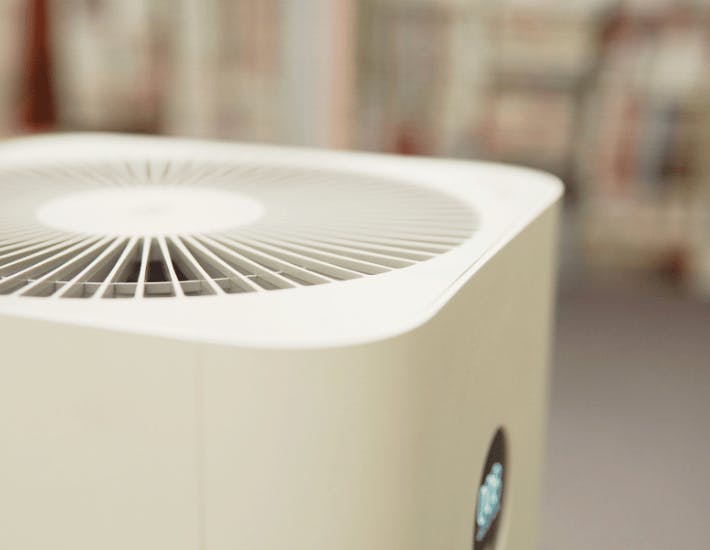
Benefits of Effective Air Filtration
Effective air filtration can provide several benefits to buildings with mechanical systems. Besides previously mentioned benefits such as indoor air quality, reduced health risk, here are four additional benefits:
- Increased energy efficiency - When air filters are clogged, they can reduce the airflow in your mechanical system, which can increase energy consumption. Effective air filtration can improve the airflow in your system, reducing energy consumption and saving you money on energy bills.
- Extended lifespan of equipment - Effective air filtration can also help extend the lifespan of your mechanical system by reducing the amount of dust and debris that can accumulate on your equipment.
- Reduced Airborne Pathogens: Air filtration can help remove airborne pathogens, such as viruses and bacteria, reducing the risk of illness transmission. Additionally, air filtration can help reduce the concentration of allergens in the air, which can lead to a reduction in allergy and asthma symptoms.
- Reduced Odors: Effective air filtration can help remove unpleasant odors in the air, improving the overall indoor environment.
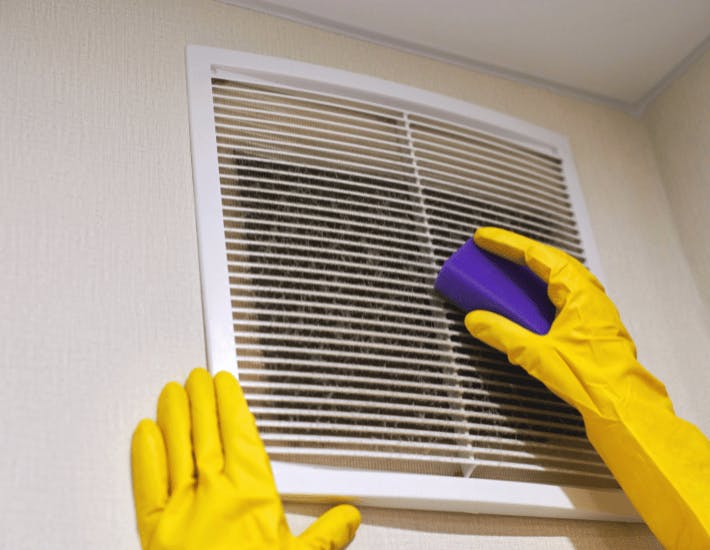
Maintaining Your Air Filters
Maintaining your air filters is essential to ensuring that your mechanical system is running efficiently and effectively. Dirty air filters can reduce the airflow in your system, increasing energy consumption and reducing the effectiveness of air filtration. Therefore, it's crucial to replace or clean your air filters regularly.
The frequency at which you should replace or clean your air filters will depend on several factors, such as the type of filter, the size of your building, and the level of pollutants present in your environment. However, it's generally recommended to replace or clean your air filters every 3 to 6 months.
In addition to regular filter maintenance, it's also essential to have your mechanical system inspected and maintained by a professional regularly. A professional can identify and address any issues with your system, such as leaks or clogs, that can impact the effectiveness of air filtration and indoor air quality.
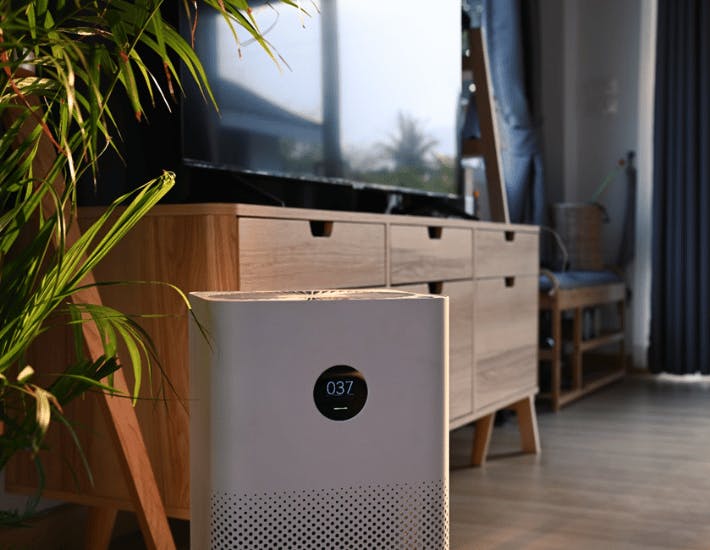
Other Strategies for Improving Indoor Air Quality
In addition to effective air filtration, there are several other strategies you can use to improve indoor air quality in buildings with mechanical engineering systems.
One of the strategies is controlling the sources of pollution by using non-toxic cleaning products and minimizing the use of products that release volatile organic compounds (VOCs) into the air. VOCs are emitted by a wide array of products, such as adhesives, paints, and cleaning supplies. These chemicals may have short- and long-term adverse health effects, and concentrations of many VOCs are consistently higher indoors than outdoors.
Another effective strategy is ensuring adequate ventilation by opening screened windows or using a mechanical ventilation system. It is important to note that in some cases opening windows may allow pollutants such as pollen in, so be sure to weigh the best option depending on the area. Proper ventilation helps to reduce indoor air pollutants by increasing the amount of outdoor air that enters the building.
Supplemental air cleaning strategies can also help improve indoor air quality. For example, electrostatic filters can help trap airborne irritants like dust. These filters use static electricity to attract and capture small particles that may otherwise circulate in the air.
Finally, strengthening the four main pillars of indoor air, including source control, ventilation, air cleaning, and occupant behavior, can help improve indoor air quality. Source control involves minimizing or eliminating indoor pollution sources, ventilation refers to the exchange of indoor and outdoor air, air cleaning involves removing pollutants from the air, and occupant behavior refers to practices like smoking outside or using ventilation fans while cooking.

Maintain a Healthy and Safe Environment with Effective Air Filtration
In conclusion, as we head into Spring and Summer, it is imperative to maintain good indoor air quality to ensure a healthy and safe environment. Effective air filtration is one of the most important strategies for improving indoor air quality, as it helps remove harmful particles and pollutants from the air. Choosing the right air filter and maintaining it regularly is crucial to ensuring that your mechanical system is running efficiently and effectively.
In addition to effective air filtration, other strategies for improving indoor air quality include proper ventilation, source control, humidity control, and regular cleaning. By implementing these strategies, you can significantly improve indoor air quality, reduce the risk of health problems, and create a comfortable and safe environment for building occupants.
It's important to work with a professional mechanical engineering company to design, install, and maintain your mechanical engineering system. They can help ensure that your system is running efficiently and effectively, and that it's providing adequate air filtration and ventilation for your building. With proper maintenance and care, your mechanical system can provide a healthy and safe indoor environment for all seasons of the year.
